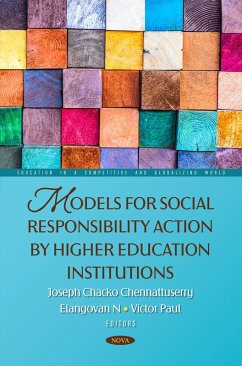Chapter 1 examines Education's role in: (1) recognizing accrediting agencies, (2) overseeing the financial condition of schools, and (3) overseeing schools' student loan default rates. Chapter 2 discusses (1) how Education oversees the financial condition of schools; (2) the extent to which Education's oversight has been effective at identifying schools at risk of closure; and (3) the extent to which Education informs schools and the public about its financial oversight. For many service members, getting an education is a critical component of transition to civilian life. Chapter 3 determines ways that the Higher Education Act is helping achieve those goals, and find areas where there are problems, and where we can make improvements. To help students and their families pay for higher education, the Department of Education provides billions of dollars in federal student loans each year through programs authorized under Title IV of the Higher Education Act as discussed in chapter 4. Chapter 5 discusses the unique challenges facing minority serving institutions and to learn about programs and support to help facilitate student success. Chapter 6 describes the several programs devoted to financially assisting minority-serving institutions (MSIs) under the Higher Education Act. Historically Black Colleges and Universities play an important and unique role in the higher education system and in their local and regional economies. As reported in chapter 7, SBA works with many colleges and universities to provide entrepreneurial training and counseling on campuses.
Dieser Download kann aus rechtlichen Gründen nur mit Rechnungsadresse in A, B, BG, CY, CZ, D, DK, EW, E, FIN, F, GR, HR, H, IRL, I, LT, L, LR, M, NL, PL, P, R, S, SLO, SK ausgeliefert werden.









